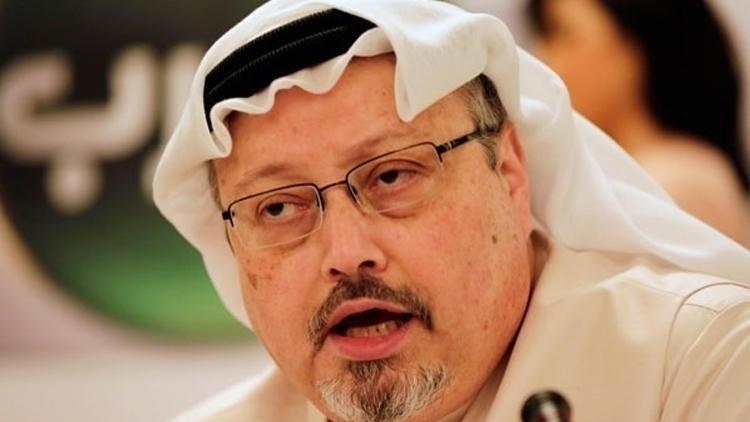
The Turkish government should make a formal request to UN Secretary-General Antonio Guterres for an international criminal investigation into the brutal murder of Saudi journalist Jamal Khashoggi, a human rights activist said on Oct. 3.
Speaking to Anadolu Agency during an event organized by the Middle East Monitor on the first anniversary of Khashoggi's killing, Human Rights Watch's Middle East and North Africa Director Sarah Leah Whitson said those who have been seriously implicated so far have been excluded from the investigation such as Saudi Crown Prince Mohammed bin Salman and royal adviser Saud al-Qahtani should be investigated by the UN.
Pointing out that an important investigation was completed by the UN's special rapporteur for extrajudicial executions, Agnes Callamard, and her call for an international criminal investigation into the brutal killing of Khashoggi, Whitson said Callamard called for the recovery of the essential missing evidence of the involvement of those specifically responsible for the murder in a new investigation.
Whitson said by thinking that they could get away with such a crime, Saudi Arabia became a “subject of mockery around the world,” adding the slow emergence of new information on the brutal murder “continues to trap the Saudi Arabian government in its lies.”
Turkey shed light on crime
Another key speaker at the commemorative event, journalist Sue Turton, underlined that a year had to pass to digest the shock that came over Khashoggi's murder.
Emphasizing that countries thought to be honoring freedom of speechsuch as the U.S. and U.K. have not made enough effort to force Saudi Arabia to reveal what really happened in its Istanbul consulate a year ago, Turton said the world learned the details of the crime thanks to the Turkish authorities.
“If it wasn't for the Turkish authorities revealing the video of him going in and the audio of his death, we wouldn't even know that much,” she said.
“The UN has tried to investigate but has been pushed back. They have been given very little help by Saudi Arabia. Saudi Arabia's crown prince has given a tiny bit, saying that actually, yes, they are responsible, but this is not enough.
“They need to come out and say how appalling this was, exactly what happened, who ordered it. And there needs to be a proper investigation that has not yet happened.”
Meanwhile, Turkey's ruling Justice and Development Party (AKP) spokesperson said: "Some people are trying to make this a bilateral issue between Saudi Arabia and Turkey. This is certainly not the case, the king and of course the people of Saudi Arabia are out of the debate."
Terrible state murder
Also speaking to Anadolu Agency, another speaker at the event, The Guardian's former foreign news editor Victoria Brittain described the killing as a “terrible state murder.”
“I think that the shock and the disgust of what happened in Britain is still very strong,” even though a year has passed, she said.
“I wish there is going to be a transparent [and] deep settling of what really happened.
“I am an optimist, and I always hope that something more will come out. But I do see the wish to pretend everything has passed and let's move on from many political leaders in the world is very strong. But I do think that ordinary people are still extremely outraged and really want to know the real responsibility and to see some accountability.”
Khashoggi, a Saudi national and columnist for The Washington Post, was killed and dismembered by a group of Saudi operatives on Oct. 2, 2018 shortly after entering the Saudi Consulate in Istanbul to acquire a marriage certificate.
After weeks of denying involvement, Saudi Arabia admitted that Khashoggi had been killed at the consulate but claimed that the royal family had no prior knowledge of a plot to murder him.
According to reports by the United Nations and other independent organizations, he was murdered and dismembered. Saudi Crown Prince Mohammed bin Salman accepted responsibility for the killing but denied ordering it.
Khashoggi is 'voice of voiceless' in Mideast: fiancée
Khashoggi represents "all the nameless people" in the Arab world, his fiancée said on Oct. 2 on the anniversary of his murder.
Khashoggi, a U.S. resident and columnist for The Washington Post newspaper, was killed and dismembered on Oct. 2, 2018 after visiting the Saudi consulate in Istanbul, where he was making arrangements for his wedding.
"What happened to Jamal showed how far human rights have been abandoned in the Arab world," Hatice Cengiz wrote in an article for the online edition of U.S. magazine Time.
"Jamal's name now represents all the nameless people in this region who would like to speak but can't articulate what they want to say, and have to remain anonymous on social media," she said.
Cengiz said Khashoggi's death was a blow to everyone fighting for democracy in the Middle East and his killers dealt another blow to his beloved by disposing of his body.
"The savagery of Jamal's killing pained anyone with a conscience.
"They tried to silence Jamal forever. But instead he has become the symbol of our collective moral conscience, the voice for the voiceless in the Middle East," she added.
The U.S. Central Intelligence Agency (CIA) assessed that Saudi Crown Prince Mohammed bin Salman ordered Khashoggi's murder. UN expert Agnes Callamard has described his death as a “premeditated execution” and called for bin Salman and other high-ranking Saudis to be investigated.
Officials in Riyadh, who initially said Khashoggi had left the premises unharmed, said the journalist was killed in a rogue operation that did not involve bin Salman. Activists have called for accountability in Khashoggi's death.